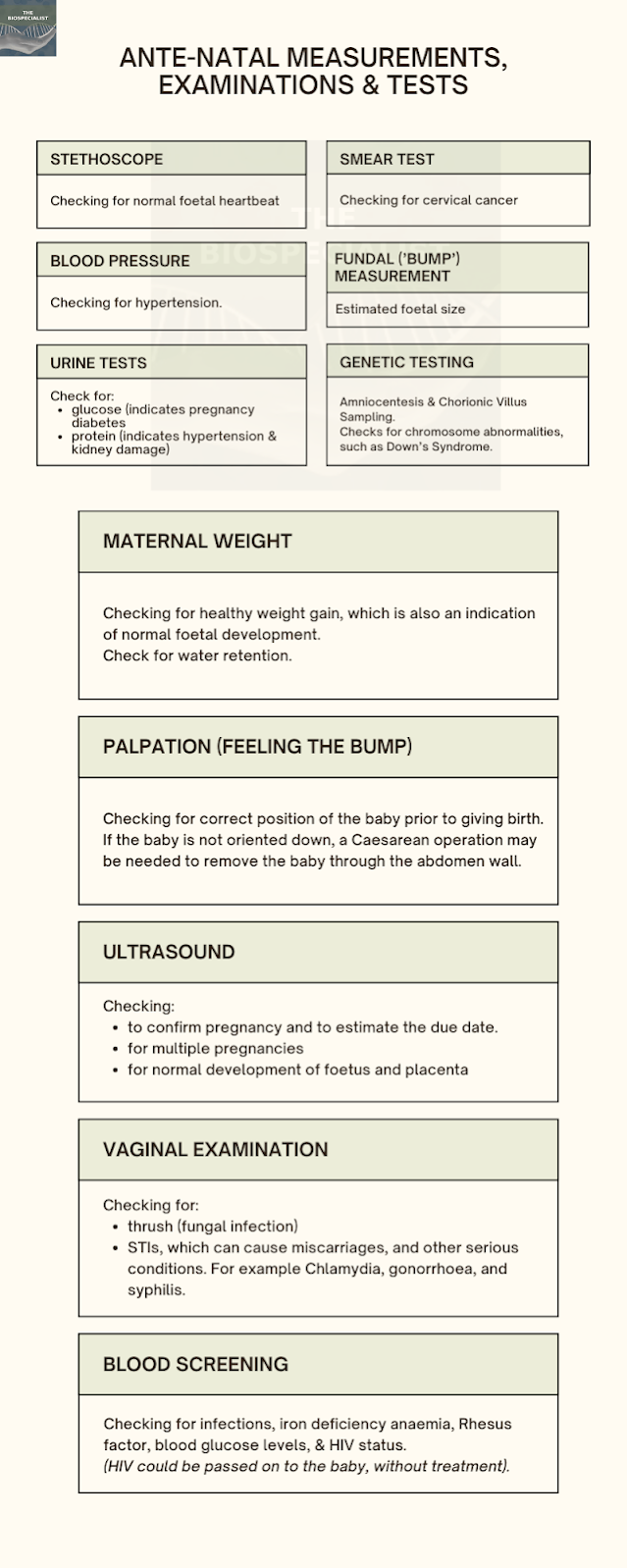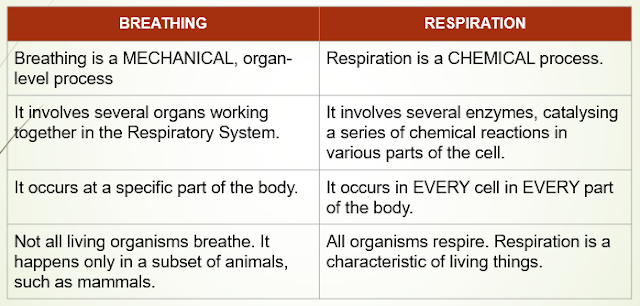PRE- AND POST-NATAL HEALTHCARE [CSEC HSB]
SYLLABUS OBJECTIVES
CSEC HSB
[B7.6] discuss pre-natal/ante-natal and post-natal care for mother and baby;
ANTE-NATAL AKA PRENATAL CARE
Ante-natal care is the care and advice given to mothers during pregnancy. This includes monitoring and various checks on maternal health.
Ante-natal clinics also advise couples that have had several miscarriages. Advice is given on how to avoid problems during future pregnancies.
Any factor that reduces the amount of oxygen delivered to the foetus means that it grows at a slower rate. Most common factors that can have this effect are:
- If the mother is anaemic. This means she has less haemoglobin available to transport oxygen through her body and to the foetus.
- If the mother smokes. The haemoglobin attaches to carbon monoxide instead of oxygen, and nicotine constricts blood vessels.
Smoking and drinking alcohol affect fertility in both males & females, and can cause early miscarriages.
During ante-natal appointments, several pieces of advice are given on the following:
Healthy diet and exercise to stay fit
- All the required nutrients, and their correct quantities. This includes:
- enough protein for growth of the foetus
- enough iron to make haemoglobin for both mother and foetus
Healthy precautions that should be taken. They include:
- take precautions to avoid all infections, especially viral infections.
- viruses such as rubella can cross the placenta, and cause serious foetal damage, such as deafness, blindness, and heart defects.
- don't smoke tobacco, don't drink alcohol nor take drugs. These can all cross the placenta into the foetus' blood, and affect their development.
- drugs can cross the placenta, affecting brain development and causing the baby to be addicted.
- Even prescription drugs can be harmful to the foetus.
- Doctors advise expectant mothers on which drugs are safe to take.
Impact of Heavy Drinking
- It may cause miscarriage, premature birth, or stillbirth (baby is born dead)
- Low birth weight
- It makes the child (and later adult) more prone to illness
- Fetal alcohol syndrome: babies have small heads, distinct facial characteristics, and learning difficulties.
Impact of Tobacco
- There is a greater risk of miscarriage, stillbirth and premature birth.
- Babies born to smoking mothers
- are affected by nicotine, which can damage brain & lungs. It restricts oxygen availability by constricting blood vessels
- are smaller, since the foetus was deprived of sufficient oxygen
- have increased heart rate
- develop lung problems.
POST-NATAL CARE
This is care of baby and mother after birth.
Professional care includes:
- examination to ensure there is no bleeding from the uterus or damage to the cervix and vagina; or signs of infections.
- advice on the following:
- a healthy diet (plenty protein, vitamins, calcium, and other minerals)
- the need to avoid smoking and alcohol
- how to care for the baby, such as bathing & nappy changing
- the benefits of breastfeeding
- when & how to wean the baby on to semi-solid, and then solid, foods
- the baby's natural sleep patterns
- how to watch for signs of normal development, & to note any concerning signs.
- care for the baby, including:
- regular checks on growth & development
- a routine vaccination schedule to help build up immunity. This can include vaccines for diphtheria, whooping cough, measles, mumps, rubella (MMR).


